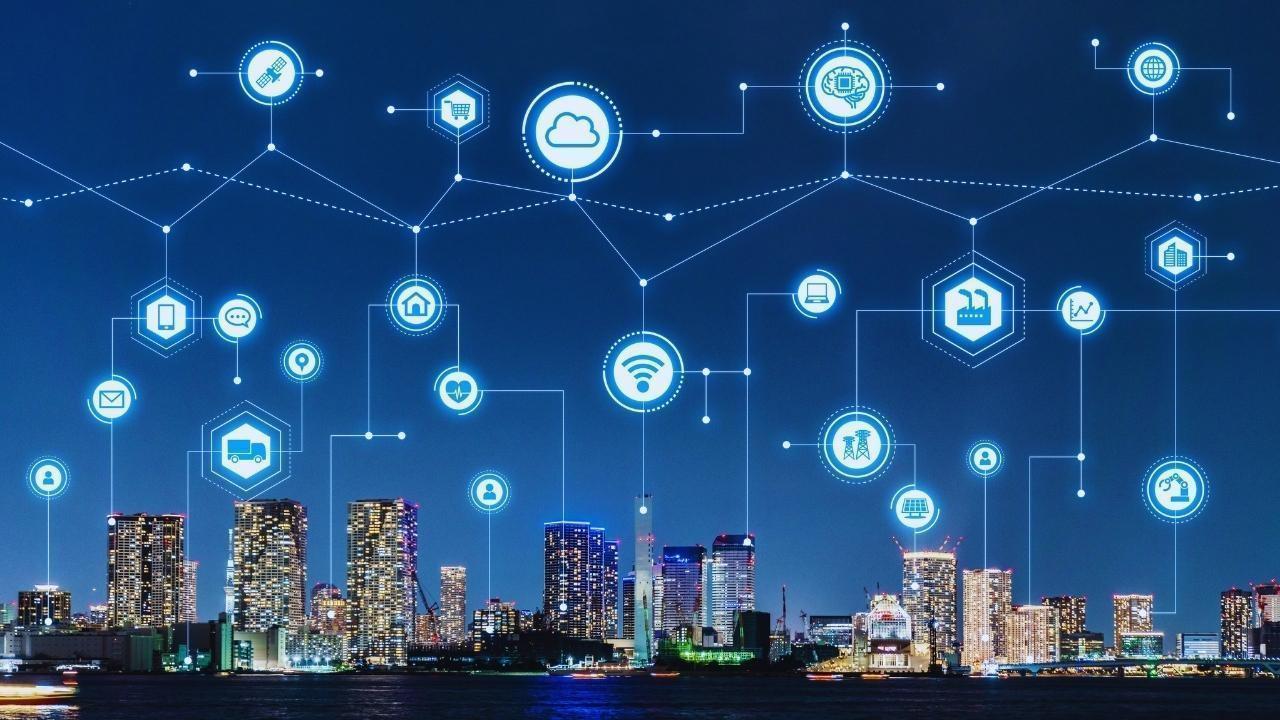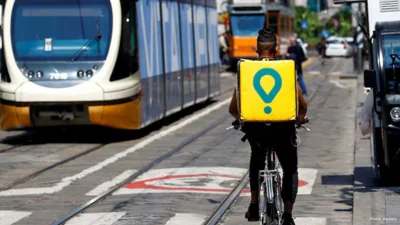
Post by : Anees Nasser
With some of the world's fastest-expanding metropolises, Asia faces unique challenges that demand innovative solutions. In the past decade, the continent has progressed as a leader in smart city initiatives, where city planners, companies, and communities adopt data-driven methodologies. By 2025, Asian cities will not merely evolve; they will undergo rapid technological transformations that adapt and respond to urban demands.
The emergence of smart city technologies signifies a monumental shift in urban interactions. Various areas—from traffic management and waste disposal to public safety and energy usage—are now steered by instantaneous data. These cities have become dynamic ecosystems, efficiently addressing needs and optimizing resources, thus influencing residents' behaviors and lifestyles.
Asia’s approach to smart cities goes beyond mere futuristic visions; it's about tangible enhancements that foster sustainable, comfortable, and safe urban environments.
Multiple elements contribute to Asia's prominence in smart city progress. Rapid urban growth has necessitated swift innovation. Rising populations challenge public services and intensify issues related to traffic, pollution, healthcare, and resource allocation. Rather than neglecting these problems, Asian countries actively embrace technology as a sustainable remedy.
Economic advancement plays a critical role as well. Various nations have heavily invested in digital frameworks, cloud services, and high-speed connectivity alongside governmental innovation strategies. A young, tech-savvy workforce and vibrant startups bolster the region's transformation efforts.
The cultural readiness for change further cements the smart city movement in Asia, as communities readily engage with new technologies and digital systems.
Ultimately, Asia's urban evolution is a fusion of urgency, creativity, and cultural readiness.
Historically, urban landscapes were defined by tangible infrastructure—roads, buildings, utilities, and public services. Come 2025, however, data stands as a crucial resource alongside those elements. Data sourced from sensors, surveillance networks, public platforms, and citizen insights are utilized to cultivate smarter urban solutions.
This wealth of information enables authorities to grasp traffic flows, community behaviors, resource inefficiencies, and necessary improvements. Instead of relying on guesswork, cities use data-driven strategies that mirror real-world activities.
Data empowers cities with predictive capabilities, allowing them to foresee and mitigate issues proactively. Traffic delays can be averted, water shortages anticipated, and healthcare systems can brace for seasonal demands, leading to enhanced responsiveness.
For citizens, this data architecture fosters a smoother and safer daily existence.
One of the most apparent benefits of smart city advancements is the overhaul of urban mobility. Traffic congestion is a longstanding issue in major cities throughout Asia. Smart transportation utilizes sensor data and AI-based predictions to refine signal operations and bolster road efficiency.
Moreover, public transit systems have adapted. Advanced ticketing, real-time route management, and predictive maintenance allow for greater ease of movement. Public transport networks collaborate seamlessly through integrated mobility applications.
The rise of electric vehicles complements this intelligent mobility landscape, with charging stations becoming increasingly data-centric, offering current availability and smart billing.
As urban travel systems become sophisticated, citizens benefit from streamlined journeys that save time and energy.
Governance within Asian cities is experiencing a notable transformation. Digital platforms enhance the accessibility and efficiency of public services. Many cities now operate e-governance systems which enable residents to request documents, voice concerns, and conduct payments online.
This data-centric governance aids city officials in identifying service bottlenecks and responding to community grievances. For instance, neighborhoods experiencing frequent water cuts can be monitored and addressed through supply data to pinpoint leaks.
By fostering transparency, these systems allow citizens to track application statuses, understand public expenditure, and follow local developments, nurturing trust in government.
The shift to a data-driven governance model enhances accountability and fosters timely interventions for urban issues.
Public safety remains a primary concern in crowded cities. Smart technologies elevate security through integrated surveillance and emergency systems. Connected cameras and sensors enable real-time threat detection and rapid response mechanisms.
Additionally, these technologies play a critical role in disaster readiness, especially pertinent to Asia's vulnerability to natural calamities. Early-warning systems utilizing environmental data can efficiently manage evacuation and traffic flow to safeguard communities.
Smart safety measures augment human vigilance, providing informed data for quicker, smarter responses to threats.
Healthcare is another vital aspect where smart technologies revolutionize urban experiences. Asian cities are weaving digital health records, telemedicine, and monitoring solutions into their healthcare frameworks.
Real-time health data equips authorities to observe outbreaks, seasonal illnesses, and resource inadequacies, facilitating quicker responses to healthcare demands.
At-home health devices empower individuals to track critical health metrics that can be shared with healthcare providers for timely intervention. This digital shift is especially advantageous for older adults and those managing chronic health conditions.
The integration of technology instills confidence and convenience, ensuring healthcare remains a regular and accessible part of daily life.
Environmental concerns are at the forefront of Asia’s smart city agendas. The rapid pace of urbanization has exacerbated issues such as pollution and waste management. Smart cities tackle these challenges through measurable and impactful strategies.
Sensors monitor air quality and environmental parameters, enabling authorities to inform regulations and adapt public policies effectively. Water management systems use data analytics to optimize resource allocation.
Smart waste management initiatives improve cleanliness and efficiency by employing sensors in bins to notify services when collection is needed, while recycling programs encourage civic participation through digital means.
In this way, sustainability transcends theory, becoming a practical guide for urban management in Asia.
With significant energy demands, Asian cities are leveraging smart grids to ensure sustainable power usage. Smart meters help residents monitor consumption while shifting electricity loads through analytics enhances grid stability.
Integrating renewable energy resources boosts efficiency, and buildings increasingly employ automated systems to manage energy usage based on real-time data.
Such initiatives lessen environmental impact while making urban landscapes greener.
Asia’s transition to digital payments has reshaped commerce, enhancing the efficiency of everyday transactions. Data gathered from these platforms informs policymakers about economic trends, spending behaviors, and opportunities for growth.
Modern financial services support local entrepreneurs, simplifying access to clientele while reducing dependence on physical infrastructure.
Smart cities flourish through community involvement. Tools for citizen reporting, feedback apps, and engagement forums empower residents to influence urban development actively.
With the availability of digital tools, communities can report concerns, volunteer for projects, and provide feedback effectively. This collective involvement fortifies trust and ownership among residents.
Despite the advancements in smart cities, challenges persist. Privacy concerns dominate discussions, as residents expect clarity in data use. Cybersecurity threats also necessitate comprehensive protective measures.
Furthermore, the digital divide poses a dilemma, with urban advancements potentially leaving rural and underserved populations behind. Inclusive strategies are essential to bridge these gaps.
Financial constraints can hinder smaller cities from implementing advanced technologies. Strategies need to be both sustainable and scalable for optimal smart city development.
The potential for data-driven urbanization in Asia is vast. Artificial intelligence, digital models of cities, autonomous transport systems, and community-focused governance will shape future urban landscapes.
Future cities will personalize experiences, melding technology with daily life to make urban living more seamless and sustainable.
The vision is to cultivate urban spaces that prioritize human connections, comfort, and collaboration.
The evolution to data-driven cities marks a significant shift in Asia's urban landscapes. By integrating technology into governance, healthcare, transportation, and community life, these urban centers have become resilient, efficient, and ultimately more enjoyable.
Smart city advancements are not solely about technology; they are fundamental to enhancing the quality of life for countless individuals. Asia's journey signifies a future where cities evolve alongside their inhabitants, becoming ever more attuned to their needs.
As this evolution continues, Asia positions itself at the cutting edge of global urbanization, promoting smarter and more sustainable living environments.
This article offers an overview of evolving trends in smart cities across Asia. For in-depth information on policies, please consult local guidelines and expert resources.










Mattel Revives Masters of the Universe Action Figures Ahead of Film Launch
Mattel is reintroducing Masters of the Universe figures in line with its upcoming film, tapping into

China Executes 11 Members of Criminal Clan Linked to Myanmar Scam
China has executed 11 criminals associated with the Ming family, known for major scams and human tra

US Issues Alarm to Iran as Military Forces Deploy in Gulf Region
With a significant military presence in the Gulf, Trump urges Iran to negotiate a nuclear deal or fa

Copper Prices Reach Unprecedented Highs Amid Geopolitical Turmoil
Copper prices soar to all-time highs as geopolitical tensions and a weakening dollar boost investor

New Zealand Secures First Win Against India, Triumph by 50 Runs
New Zealand won the 4th T20I against India by 50 runs in Vizag. Despite Dube's impressive 65, India